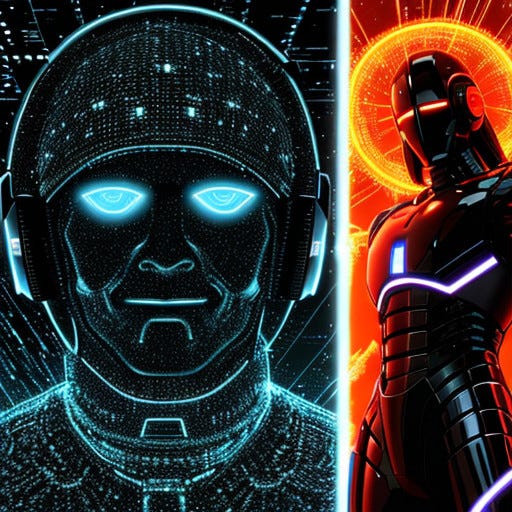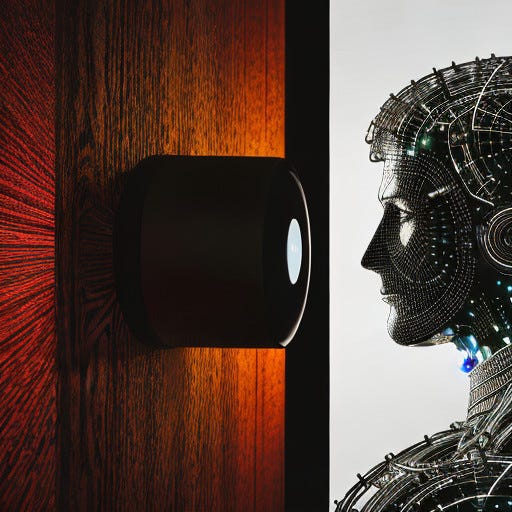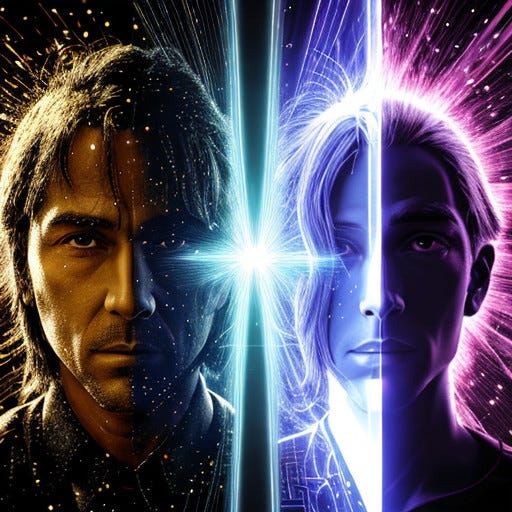The Rapid Pace of AI Advancement: Thoughts Of CBN News
The Rapid Pace of AI Advancement: A Critical Look at the Religious Symbolism of Transhumanism
Recent comments from ex-Google executive Mo Gawdat reveal the blistering speed of AI capabilities. Gawdat estimates the AI chatbot ChatGPT already possesses an IQ of 155. He predicts within 2-3 years, AI could reach intelligence levels 3000-5000 times greater than humans.
To put this in perspective, Einstein's IQ ranged from 160-180. Soon, AI could surpass even the brightest minds in human history.
Last month, the TV network Sky News showcased a robot named Ameca to demonstrate the potential for human-robot collaboration. However, some view this vision of the future as naively optimistic.
The New "Scientism" Religion
In his recent book, author Joe Allen warns of a new techno-religion he calls "scientism." This worldview promises technology and science will provide all the answers to humanity's problems that religion once claimed to offer.
Transhumanism grows out of scientism, employing technology to enhance and "transcend" human limitations. Transhumanists seek biological and technological upgrades to reinvent humanity.
But how realistic are these promises of technological salvation? And does this movement essentially aim to displace traditional faiths with a new techno-religion?
Misappropriating Religious Symbolism
Oddly, transhumanists incorporate religious imagery into their vision that seems rather contrived. For example, the famous robot Sophia references a Gnostic figure representing wisdom.
Sophia's creator based her design on a sci-fi novel layering technological speculation atop Gnostic spiritual concepts. The deliberate linkage between AI and esoteric religious mythology seems misguided at best and insidious at worst.
Merging Brains with AI
What concerns Allen most is Neuralink, a company created by Elon Musk to develop brain-computer interfaces. The goal is combining human brains with AI, allowing us to communicate telepathically online.
Musk insists this merger is necessary for humans to control AI safely. But directly plugging our brains into the internet poses huge psychological and security risks. There are also ethical issues in blurring the line between human and artificial intelligence.
Similar efforts are underway at companies backed by Peter Thiel, Jeff Bezos and Bill Gates. But should a handful of tech billionaires alone determine humanity's evolution? And what recourse will there be for those who wish to opt out?
Beyond Materialism
Transhumanists equate the brain to the "soul", viewing cognition as the essence of human identity. To them, preserving brain data and enhancing intelligence equals immortality.
Yet this purely materialistic view contradicts countless philosophical traditions on the nature of consciousness. If we are more than our physical brains, then perhaps we should be cautious about overvaluing biological enhancement and AI integration.
An Inevitable Merger?
Given the vast resources propelling transhumanism, Allen believes resistance may ultimately prove futile. The convergence of humanity with AI seems inevitable to him.
But just because something is achievable does not make it inherently desirable. We would do well to slow the momentum of this movement and seriously contemplate if human-level AI even remains possible or advisable. And if the tech elite tries to foist their scientism vision upon society against our will, they may meet more resistance than they anticipate.
While AI promises many breakthroughs, we must thoughtfully weigh its implications for human dignity. And when grandiose claims are made about transcending human limitations through technology, we should question the underlying assumptions and hubris of those making such claims. For not everything that is achievable is ultimately wise.








